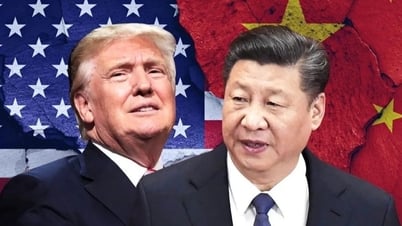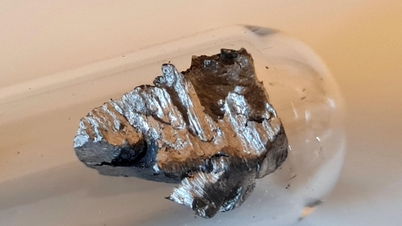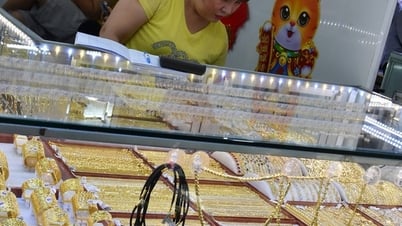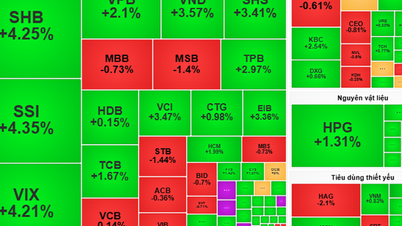According to data released by the General Administration of Customs of China on June 20, China's rare earth exports to the US in May decreased by 80% compared to the same period last year.
Chinese exports to Japan also fell by 54%, which experts say is the latest sign that Beijing’s trade controls are shaking up global supply chains.
Although exports to the US recovered in April, the situation was not much better in May. China’s total rare earth exports in May fell 48% compared to the same month last year. Beijing had previously imposed export restrictions on seven rare earth elements in retaliation for reciprocal tariffs imposed by the Trump administration.
Exports of rare earth magnets from China to the United States have fallen by 93%, according to Chinese Ministry of Commerce data compiled by FerroAlloyNet. Total magnet exports have also fallen by 74%.
In May, the US and China reached an agreement to cut tariffs and remove some non-tariff barriers during ministerial talks in Switzerland. However, after the agreement was announced, the US expressed disappointment that progress on rare earth exports from China continued to stagnate.

China dominates rare earths (Photo: AFP).
China’s rare earth exports to Japan continued to decline in May, with a clear impact on many businesses. Suzuki Motor, for example, has had to temporarily suspend production of its Swift model due to a shortage of rare earth components. China accounts for about 70% of global rare earth production, which is essential for electric vehicles and many other advanced technologies.
The Japanese Chamber of Commerce and Industry in China has called on Beijing to ensure the approval process for rare earth exports is carried out fairly and promptly.
In contrast to Japan, China’s exports of seven rare earths to Thailand and South Korea increased in May, continuing the previous month’s increase, suggesting that some countries are acting as transit points for other markets.
During recent talks in London, US and Chinese negotiators agreed to develop a framework to implement the agreement reached in Switzerland. Beijing is expected to ease export controls on rare earths, while Washington is also likely to ease restrictions on semiconductor exports.
However, the specific terms of the London agreement will only come into effect after being formally approved by US President Donald Trump and Chinese President Xi Jinping. No details have been released yet.
China has maintained that its export licensing process is still proceeding in accordance with current procedures. Chinese Ministry of Commerce spokesman He Yadong said that China has approved some export applications that meet the standards and will continue to increase approvals for qualified cases.
In May, Chinese exports of consumer goods to the US continued to fall sharply. Specifically, smartphones fell 76%, fireworks fell 75%, and clothes irons fell 56% compared to the same period last year. All of these declines were faster than the decline in April.
Total exports from China to the US in May fell 35% year-on-year, down significantly from April's 21%.
Source: https://dantri.com.vn/kinh-doanh/xuat-khau-dat-hiem-cua-trung-quoc-giam-bao-dong-dieu-gi-dang-xay-ra-20250621144108660.htm




![[Photo] Prime Minister Pham Minh Chinh meets with Speaker of the New Zealand Parliament Gerry Brownlee](https://vphoto.vietnam.vn/thumb/1200x675/vietnam/resource/IMAGE/2025/8/28/cec2630220ec49efbb04030e664995db)
![[Photo] General Secretary To Lam attends the opening ceremony of the National Achievements Exhibition](https://vphoto.vietnam.vn/thumb/1200x675/vietnam/resource/IMAGE/2025/8/28/d371751d37634474bb3d91c6f701be7f)
![[Photo] General Secretary To Lam presents the 45-year Party membership badge to comrade Phan Dinh Trac](https://vphoto.vietnam.vn/thumb/1200x675/vietnam/resource/IMAGE/2025/8/28/e2f08c400e504e38ac694bc6142ac331)
![[Photo] Red flag with yellow star flutters in France on National Day September 2](https://vphoto.vietnam.vn/thumb/1200x675/vietnam/resource/IMAGE/2025/8/28/f6fc12215220488bb859230b86b9cc12)
![[Photo] Politburo works with the Standing Committee of Cao Bang Provincial Party Committee and Hue City Party Committee](https://vphoto.vietnam.vn/thumb/1200x675/vietnam/resource/IMAGE/2025/8/28/fee8a847b1ff45188749eb0299c512b2)























































































Comment (0)